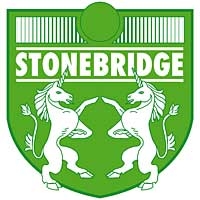-
Home
-
Contributors
-
International
-
Account
-
Information
More From Contributor
- dealing with the shape of the hand & Cheiromancy
- dealing with the lines & marks on the palm. This course shows you how to formulate predictions & become a professional counsellor. ...
- a collection of meridian healing techniques & life tools that are essential knowledge to any serious natural healthcare professional. ...
Includes:: research scientists, salesmen & saleswomen, accountants, typists & chief executives. After participating in this course, you should be able to: describe ways of identifying training needs recognise potential solutions to identified training needs describe methods for monitoring training identify methods for reviewing the performance of individuals understand discipline & grievance procedures describe strategies to support employees in improving their performance. In working through this session, you will practise the following BTEC common skills: Managing & Developing Self Working with & Relating to others Communicating Managing Tasks & Solving Problems Applying Numeracy Applying Technology Applying Design & Creativity ...

People, Organisation And Management
impact on People, Organisation and Management. However, before looking at the individual factors which are shaping the workplace of the 21st century, it is important to set the scene in terms of the external environment in which the modern organisation exists. Against this backdrop, the way in which people are managed in the workplace has had to adapt and evolve. Gone is the ‘one best way’ approach to managing people, to be replaced by a range of different techniques, depending on the circumstances and the people involved. Management thinking and practice has moved on in order to cope with the increasingly diverse workplace of the 21st century. On completion of this course the student will be able to: Employ a variety of social science and management concepts in the
analysis of work organisation. Reflect on and evaluate the different forms work organisation can take and its key dimensions and recognise conflict and commitment as key outcomes of work and the different ways in which they can both be managed. Identify and evaluate managerial and employee goals for and perspectives on work organisation. Appreciate the complexities of group working.
This page now acts as a permanent archive for this product. Add more information using the comments box below to ensure it can still be found by future generations.
Use our search facility to see if it is available from an alternative contributor.
- Availability: Out Of Stock
- Supplier: Stonebridge
- SKU: 624
Product Description
People, Organisation & Management Course
There has been a fundamental shift in the boundaries that shape organisations & work over the last two decades. Rapidly changing social & economic conditions have forced employers to change both their focus & their approach to work & the organisation, in order to survive & prosper in what are generally regarded as turbulent times. Similarly, employees have different expectations of work; overall, they are better educated, possess higher skill levels & have greater aspirations than previous generations. The changing dynamics & experiences within the workplace have led to a questioning of the nature of work & the employment relationship.
In this course, we will consider a number of contemporary issues in terms of their impact on People, Organisation & Management. However, before looking at the individual factors which are shaping the workplace of the 21st century, it is important to set the scene in terms of the external environment in which the modern organisation exists.
Against this backdrop, the way in which people are managed in the workplace has had to adapt & evolve. Gone is the ‘one best way’ approach to managing people, to be replaced by a range of different techniques, depending on the circumstances & the people involved. Management thinking & practice has moved on in order to cope with the increasingly diverse workplace of the 21st century.
On completion of this course the student will be able to:
Employ a variety of social science & management concepts in the analysis of work organisation.
Reflect on & evaluate the different forms work organisation can take & its key
Dimensions & recognise conflict & commitment as key outcomes of work & the different ways in which they can both be managed.
Identify & evaluate managerial & employee goals for & perspectives on work organisation.
Appreciate the complexities of group working.
Reviews/Comments
Add New
Intelligent Comparison
We couldn't find anything!
Perhaps this product's unique.... Or perhaps we are still looking for comparisons!
Click to bump this page and we'll hurry up.
Price History
We couldn't find any historical pricing!
Vouchers
Do you know a voucher code for this product or supplier? Add it to Insights for others to use.


 United Kingdom
United Kingdom
 France
France
 Germany
Germany
 Netherlands
Netherlands
 Sweden
Sweden
 USA
USA
 Italy
Italy
 Spain
Spain










 Denmark
Denmark